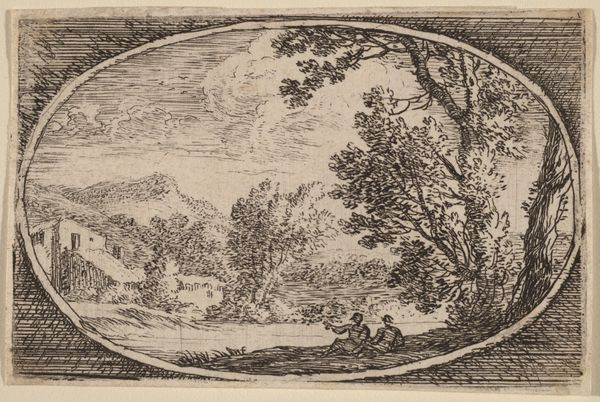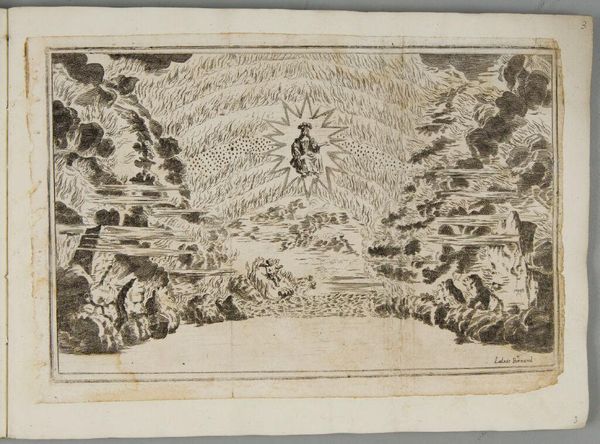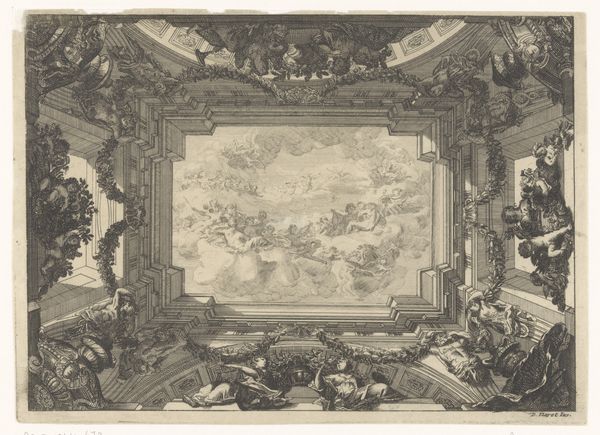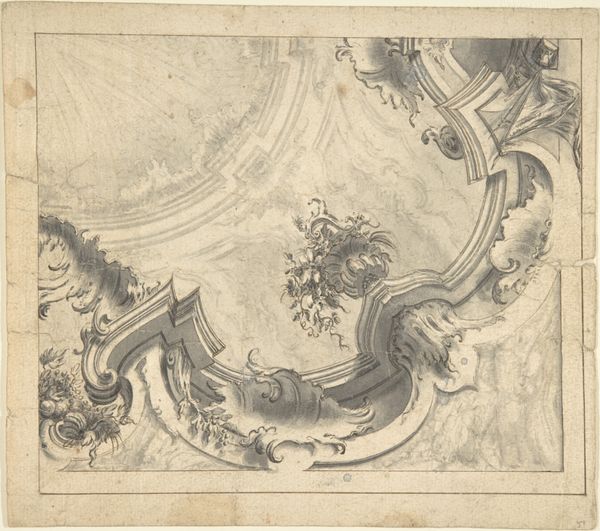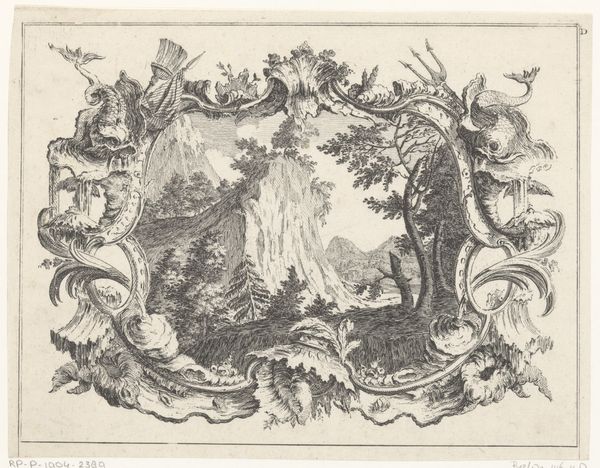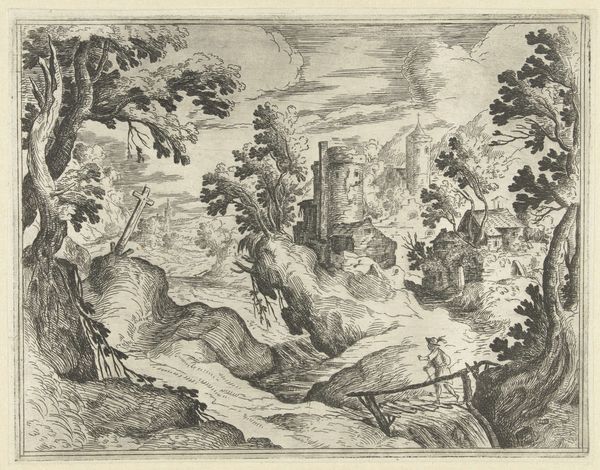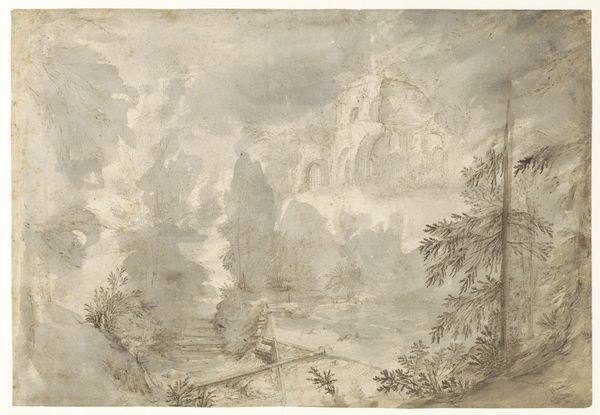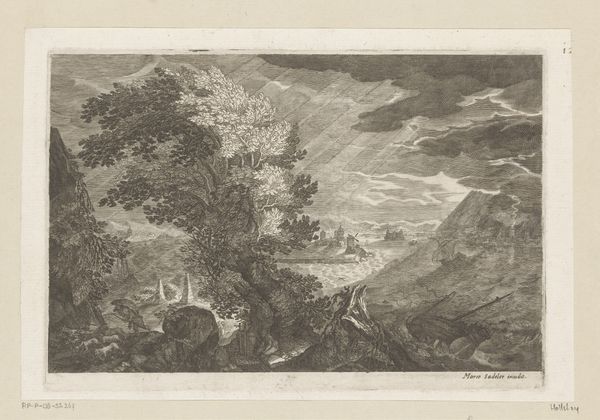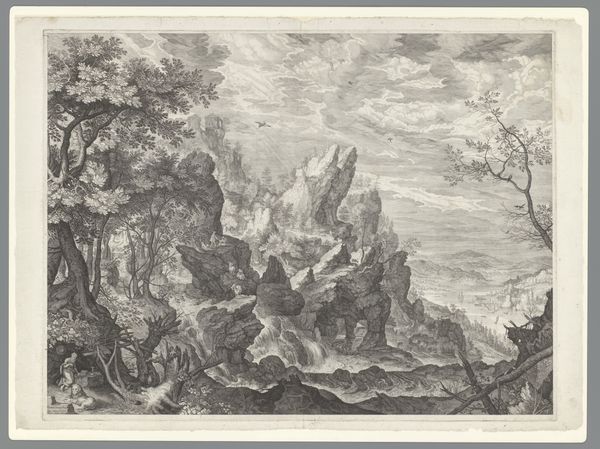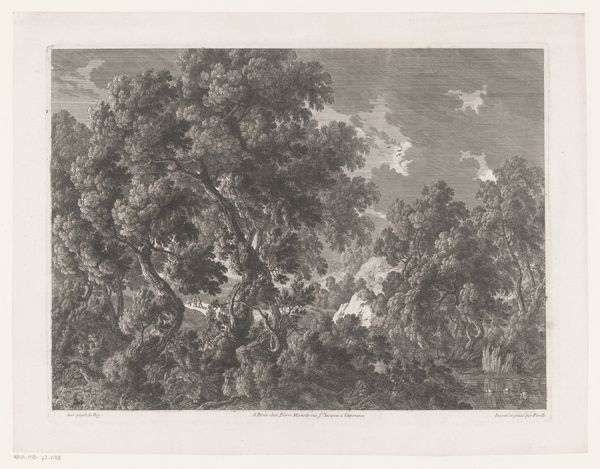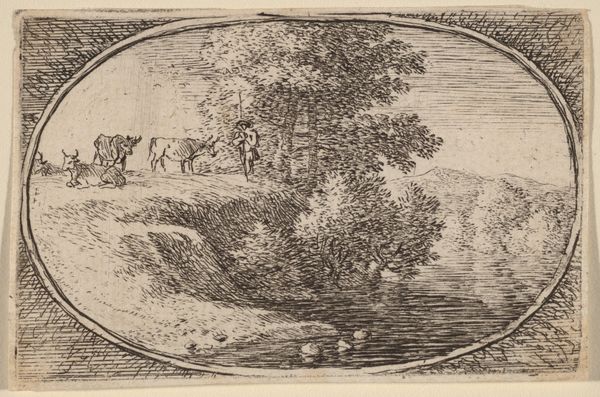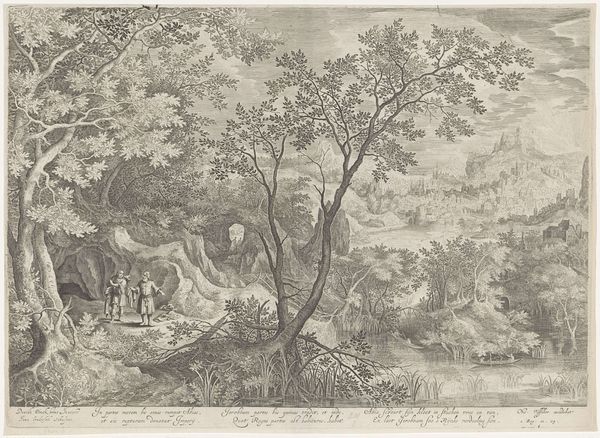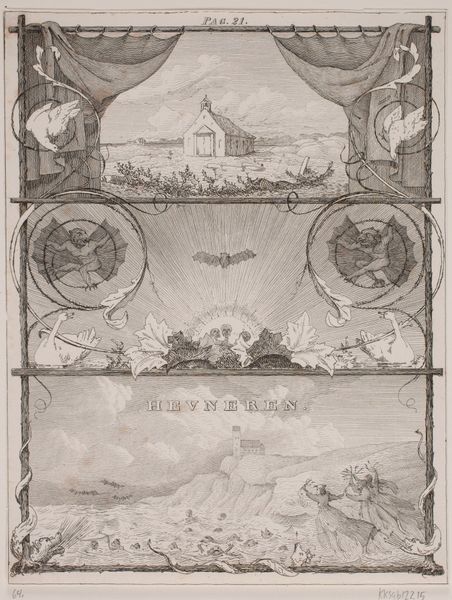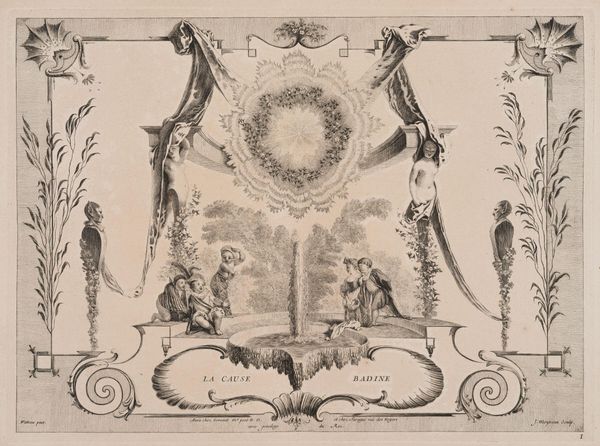
A female figure in glory at center, surrounded by burning rocks; below Cupid sailing on a burning chariot; set design from 'Il Pomo D'Oro' 1668
0:00
0:00
drawing, print, etching
#
drawing
#
allegory
#
baroque
# print
#
etching
#
sculpture
#
landscape
#
figuration
#
cupid
#
history-painting
Dimensions: Sheet (Trimmed): 10 7/16 × 16 7/8 in. (26.5 × 42.9 cm)
Copyright: Public Domain
Mathäus Küsel created this etching, a set design from 'Il Pomo D'Oro', in seventeenth-century Germany. Here, visual codes of power and divinity meet in a theatrical spectacle. A female figure dominates the composition, radiant amidst burning rocks, a visual metaphor for purification and apotheosis. Below, Cupid sails on a fiery chariot, suggesting themes of love and transformation. Set designs like these were integral to Baroque opera, reflecting the era's penchant for extravagant display and allegorical storytelling. The opera was performed for the Habsburg court of the Holy Roman Empire, and such displays of wealth and artistic expression served to legitimize their rule. The Habsburgs were great patrons of the arts and they used opera to project an image of power, wealth, and cultural sophistication. To fully appreciate this image, consider the political and social context of seventeenth-century Europe. Scholarly resources, from costume design to the history of set design, can reveal the significance of courtly spectacle. Ultimately, this artwork shows us how art can shape and reflect the social structures of its time.
Comments
No comments
Be the first to comment and join the conversation on the ultimate creative platform.
